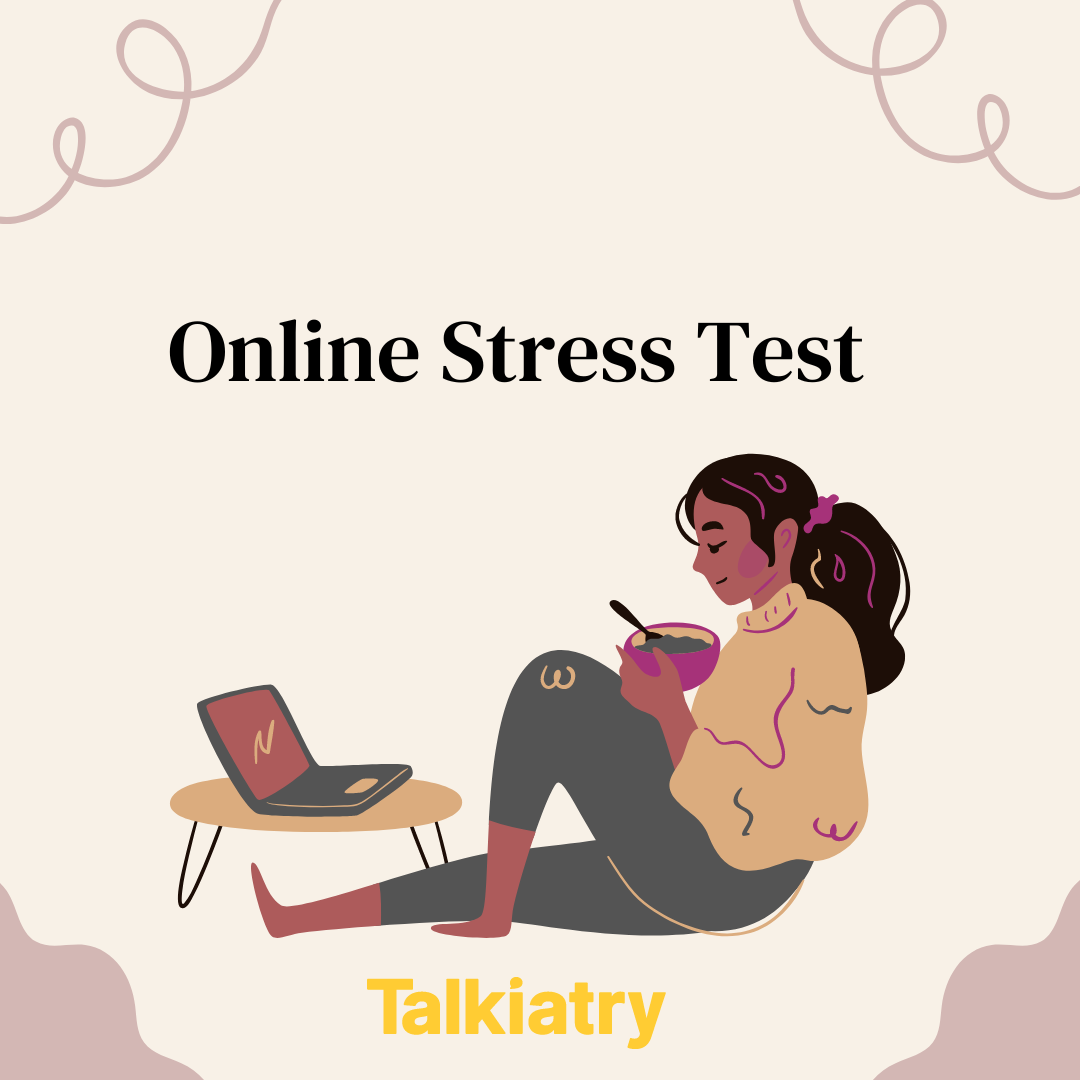Mental energy allows individuals to sustain attention, stay focused, and perform cognitive tasks. Many may struggle with low mental energy for several reasons, such as juggling multiple responsibilities, making frequent decisions, and feeling overwhelmed. Regardless of the cause, practicing meditation, engaging in mentally stimulating games, journaling, and seeking therapy can help boost mental clarity and focus.
Would you like to try therapy?
Most people (76%) who try therapy have a positive experience! Stat Source BetterHelp has over 20,000 licensed therapists who provide convenient and affordable online therapy. BetterHelp starts at $65 per week. Take a Free Online Assessment and get matched with the right therapist for you.
What Is Mental Energy?
Mental energy refers to the ability or willingness to perform cognitive tasks, like problem-solving, sustaining attention, focusing, and making decisions. Just like people need physical energy to climb a set of stairs or lift heavy objects, we also need mental energy to carry out mental work.1 When your mental energy is low and you experience mental fatigue, you may feel like you have brain fog and be easily distracted or unfocused.
Some of the reasons why someone might feel like their mental energy is low include:
- A sense of being pulled in multiple directions at once
- Juggling the demands of personal life, family, or work
- Multitasking
- Feeling overstimulated by your environment
15 Ways to Increase Mental Energy
There are many ways to increase your mental energy, including focusing on something different, taking a mental break, or taking good care of yourself physically. If you feel foggy, unable to concentrate on mental work, or your mind energy is lagging, think of this as a message from your mind letting you know that it needs to recharge.
While there are several tips on this list, don’t feel like you need to try them all immediately. Start with a couple and see what works for you, then add to or change your routine when you need a new way to boost your energy levels.
Here are 15 tips for how to increase mental energy:
1. Practice Affirmations
Research shows that positive affirmations can work to help you feel more relaxed, motivated, and confident. The next time your mental focus is low and you are struggling with self-doubt, try repeating a positive affirmation, such as, “I am focused and competent,” or, “I am well-prepared and have what it takes to succeed.”2
2. Think Positively
Negative self-talk can be a self-fulfilling prophecy. When you think thoughts like, “I can’t do this,” “I’m a failure,” or “I’m too exhausted,” your brain makes new connections to reinforce those negative thoughts. The process of neuroplasticity allows you to rewire those thoughts to be more positive. Remind yourself that you are capable.3
3. Focus on Relationships That Bring You Joy
Spend time with people who bring you joy, make you feel happy, or make you laugh. Positive, uplifting relationships can help take the focus off of your thoughts and worries and help you mentally and emotionally recharge.
4. Move Your Body
Exercise has many mental health benefits and has been long been known to help clear the mind, improve mood, and increase focus. It doesn’t have to be a gigantic workout, either! Start by getting up from your desk, stretching your legs, and taking a short, brisk walk.
5. Meditate Regularly
Meditation is a way to increase focus and strengthen mental energy and attention. Start with a two-minute breath practice. Set a timer, get into a comfortable position and breathe. Say to yourself, “Breathing in, breathing out.” If your mind chatters, that’s OK! The goal isn’t to have a blank mind but to focus on the breath. When your mind wanders, gently bring your attention back to your breath. There are many apps for meditation that can make picking up the practice a lot easier.
6. Focus on One Thing at a Time
When we think that we’re multitasking, we are usually just switching between multiple tasks in a distracted way. This can create stress and anxiety, reduce focus, and sap mind energy. Instead, try focusing on one task at a time.
7. Do a Puzzle
Sudoku, crossword, jigsaw, logic…whichever type of puzzle you like can be great for increasing mental energy. It gives your brain something different to focus on and uses different neural pathways than the mental work of usual daily tasks.
8. Practice Mindfulness
Mindfulness is simply noticing what is happening in the present moment without judging it or trying to change anything. Try noticing five things you can see, four things you can hear, three things you can touch, two things you can smell, and one thing you can taste.
Self-Care Ideas (most you can try for free)
Want to drink less? Sunnyside App – Free Trial
Want to lose weight? Consult online with a doctor to see if medication may be a good option for you. Visit Plushcare
Want to practice mindfulness and meditation? Mindfulness.com – Free Trial
9. Do Nothing
Are you feeling mentally exhausted? Maybe it’s time to do absolutely nothing for a while! Stare at a wall or close your eyes for a few moments. Enjoy some quiet and allow your tired mind to rest and your mental energy to recharge.
10. Journal
Take a moment to write out your thoughts. Journaling is a great way to get things off your mind and onto paper and increase your mental energy. The best part about it is that there is no “right” way to journal; just grab a pen and paper and start writing.
11. Make a List
Having a lot of things rattling around your head and taking up space on your mental to-do list can be exhausting. Take a few minutes to update your list, whether on paper or on your phone or computer, to free up some mental energy.
12. Take Regular Breaks
Make it a habit to take a break and recharge at regular intervals throughout the day. For example, every 90 minutes, I get up and walk around for five minutes, or I stand up and stretch. This allows you to regularly renew your mental energy and prevent it from becoming depleted.4
13. Focus on Proper Sleep Hygiene
A good night’s sleep is critical for good mental energy. Establish a calming bedtime routine to help you wind down and relax before bed. Make sure you have a comfortable, calm environment and set yourself up for the best sleep possible.5
14. Get a Change of Scenery
Sometimes, just working in a different space can give you a little mental boost. If possible, try moving to a different desk for the day. Work at the library or a coffee shop. Or if you usually work somewhere noisy, try someplace quiet. Switch it up and notice what happens to your mental energy.
15. Speak to a Mental Health Professional
If you continue to struggle with concentration, attention, mood, or mental energy in spite of trying to make positive changes, these could be symptoms of an underlying mental health concern, or even a physical health problem. Talking to your primary care physician to rule out any biological issue and then finding a licensed mental health professional can help. Start your search in an online therapist directory.
In My Experience
To help our readers take the next step in their mental health journey, Choosing Therapy has partnered with leaders in mental health and wellness. Choosing Therapy is compensated for marketing by the companies included below. Online Therapy BetterHelp Get support and guidance from a licensed therapist. BetterHelp has over 20,000 therapists, who provide convenient and affordable online therapy. Complete a brief questionnaire and get matched with the right therapist for you. Get Started Psychiatry, with you in mind Talkiatry Our Psychiatrists Can Diagnose Your Condition, Prescribe Medication, And Monitor Your Progress. Most psychiatry visits cost patients $30 or less* Free Assessment Drinking Moderation Sunnyside Want to drink less? Sunnyside helps you ease into mindful drinking at your own pace. Think lifestyle change, not a fad diet. Develop new daily routines, so you maintain your new habits for life. Take a 3 Minute Quiz Relationship Help OurRelationship (Free Couples Course) OurRelationship has been proven to help couples improve communication, intimacy, and trust. 94% would recommend it to a friend. Get Started Mental Health Support Group App Circles Anytime, anonymous, and free. Never feel alone during life’s greatest challenges. Drop-in to live conversations and share thoughts, ask questions, or learn from others on the same journey. Join Circles Now Free Prescription Discount Card Optum Perks Save up to 80% on most prescriptions. Optum Perks provides discounts at over 64,000 pharmacies nationwide. No memberships or costs to you, ever. It’s really that easy. Get your card and start saving. Get the discount card! *Includes copayment, deductible, coinsurance, and $0 Visits. Excludes no shows.Additional Resources
Online Stress Test A few questions from Talkiatry can help you understand your symptoms and give you a recommendation for what to do next. Best Online Therapy Services There are a number of factors to consider when trying to determine which online therapy platform is going to be the best fit for you. It’s important to be mindful of what each platform costs, the services they provide you with, their providers’ training and level of expertise, and several other important criteria.






